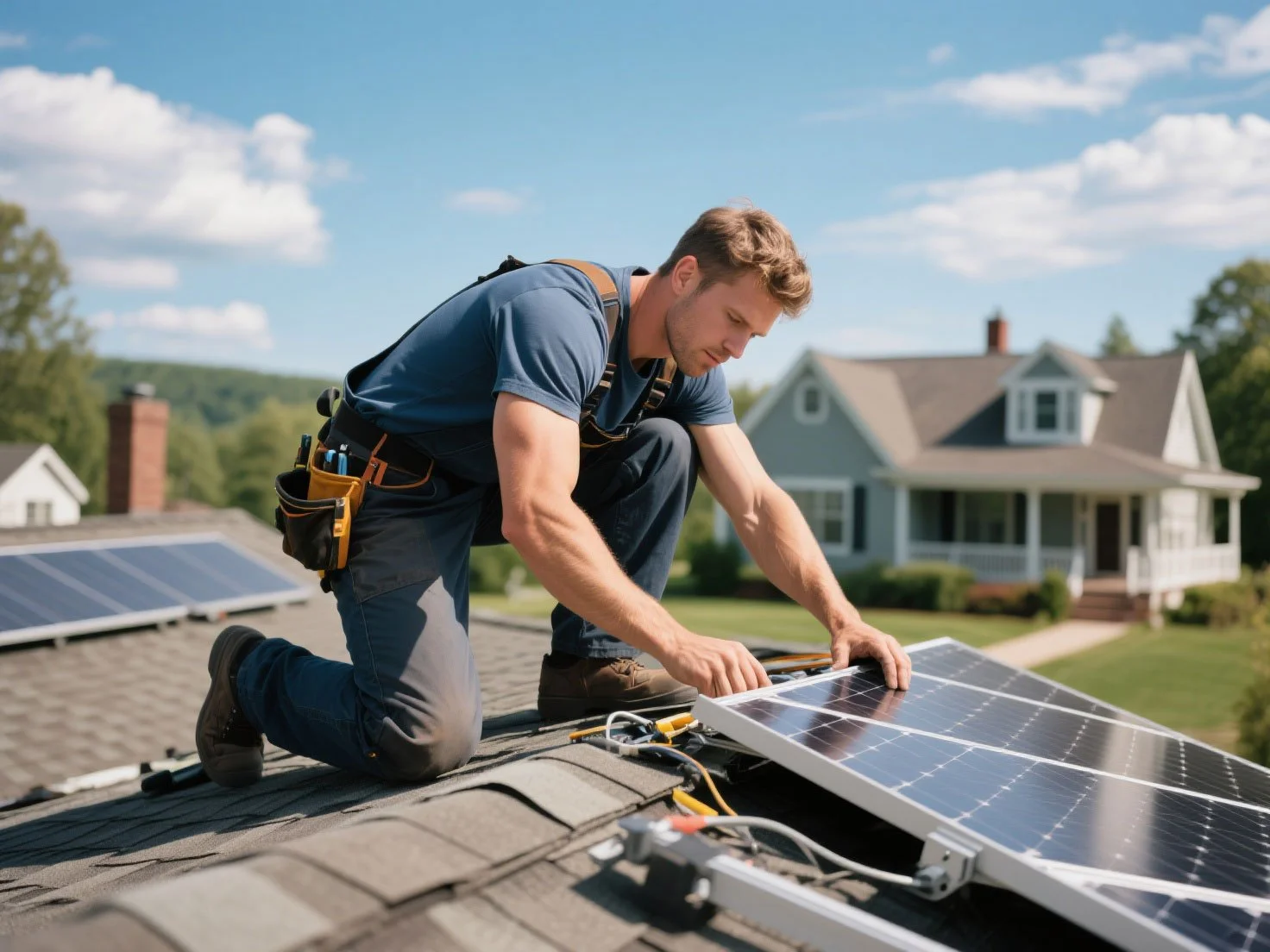Shift in Federal Energy Policy: What the Rollback of Green Subsidies Means for Homeowners?
In a major policy change, the U.S. Department of Energy has announced plans to cancel more than $13 billion in funds. These funds were meant to support renewable energy and electric vehicles. This decision marks a significant shift from the strategy of the previous administration. It has sparked an active discussion about the future of energy in America. For homeowners, this decision goes beyond mere political news. It can have a direct impact on household budgets. Additionally, it may influence home values and even insurance policies.
The Policy Change Explained
The Department of Energy announced that it has canceled these funds. This decision aligns with the current administration's goal. They aim to achieve "affordable, reliable, and secure American energy." Energy Secretary Chris Wright criticized what he described as an exaggeration of climate change. He argued that this exaggeration resulted in massive spending with "very little positive impact."
The announcement was met with immediate criticism. California Governor Gavin Newsom warned that the U.S. was ceding its leadership on clean energy to China. The news comes after President Trump called climate change a "con job" at the United Nations General Assembly. This statement highlights his administration's commitment to increasing fossil fuel production.
What Does This Mean for You as a Homeowner?
This policy change can affect homeowners in several key areas:
1. The Immediate Cost of Going Green
The most direct impact is on your wallet. The cancellation of federal subsidies means:
Higher Upfront Costs: Installing residential solar panels or battery storage, like a Tesla Powerwall, can be expensive. The same goes for purchasing an electric vehicle. Without federal tax credits or rebates, these costs may increase significantly.
Longer Payback Period: The return on investment for energy-efficient home improvements will take longer. This is due to higher initial costs without government support.
2. The Impact on Your Home Insurance
This is a crucial and often overlooked consequence. Here’s how these policy changes could influence your homeowners’ insurance:
Increased Risk from Climate Events: When climate change initiatives are not prioritized, the risk of weather-related disasters rises. Events like wildfires, floods, and severe storms may become more common. Over time, this situation may lead to increased insurance premiums for all residents in high-risk areas. Insurers will encounter a greater number of claims.
Potential Discounts at Risk: Many insurance companies offer premium discounts for homes that have certain green features. These features include hail-resistant solar panels and lightning protection systems that are connected to new installations. A slowdown in these upgrades may result in fewer homeowners qualifying for these savings.
Coverage for Green Upgrades: If you have made energy-efficient upgrades, your standard policy may not cover their full cost if your home is damaged. You may need to add an "endorsement" or increase your dwelling coverage. This will help you replace your solar panels or other systems. You will not have to face significant out-of-pocket expenses.
What Homeowners Should Do Now?
In light of this news, taking proactive steps can protect your investment and manage costs.
Review Your Insurance Policy: Contact your insurance agent to discuss your coverage. Specifically, ask:
"Do I have enough dwelling coverage to rebuild my home, including solar panels or green upgrades, at current costs?"
Am I receiving all applicable discounts for my home's features?
Should I consider adding an endorsement for high-value green improvements?
Re-evaluate Energy Projects: If you were considering a solar installation or other major energy upgrade, don't abandon your plans immediately. Research state and local incentives, which may still be available. Also, get updated quotes from contractors, as market competition could help offset the loss of federal subsidies.
Emphasize Effective, Affordable Resilience: No matter the federal policy, enhancing your home's resilience is a wise financial decision. Consider investments that lower risk and may be favored by insurers:
Fire Mitigation: Creating defensible space, using fire-resistant landscaping, and installing ember-resistant vents.
Storm Preparedness: Installing storm shutters or reinforcing your roof.
Energy Efficiency: Sealing air leaks and adding insulation can lower energy bills. These improvements often remain stable despite policy changes.
The Bottom Line
While the full impact of this policy shift will unfold over time, homeowners should stay informed. The connection between national energy policy, climate risk, and insurance is becoming increasingly direct. By understanding these connections, you can protect your property. This knowledge allows you to make informed choices. These choices will enhance your home's safety and secure your financial future.



